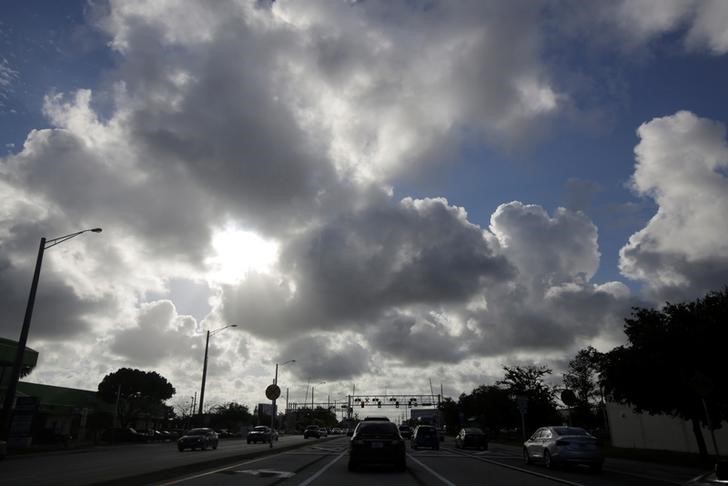
By David Shepardson
WASHINGTON (Reuters) -The U.S. Centers for Disease Control and Prevention (CDC) on Thursday advised that fully vaccinated people do not need to wear masks outdoors and can avoid wearing them indoors in most places, updated guidance the agency said will allow life to begin to return to normal.
The CDC also said fully vaccinated people will not need to physically distance in most places. The agency also hopes the guidance will prod more Americans to get vaccinated.
President Joe Biden emerged at the White House for remarks without a mask. “I think it’s a great milestone, a great day,” he said.
“If you’re fully vaccinated and can take your mask off, you’ve earned the right to do something that Americans are known for all around the world: greeting others with a smile,” he said, flashing a brief smile himself.
CDC Director Rochelle Walensky said the new guidance just two weeks after its most recent update, was based on a sharp reduction in cases, expansion of vaccines to younger people and vaccine efficacy against coronavirus variants.
“We followed the science here,” Walensky said adding, “a coalescence of more science that has emerged just in the last week.”
Biden earlier shed his mask during a meeting with lawmakers, Republican Senator Shelly Moore Capito told reporters. “We heard all about it. The president took his off too,” she said.
Some journalists at the White House also shed their masks.
The CDC had faced criticism, even from public health officials, that it has been too cautious in its guidance. Critics have said people need to see more benefit of getting vaccinated in terms of returning to normal activities.
“In the past couple of weeks, we have seen additional data to show these vaccines work in the real world, they stand up to the variants, and vaccinated people are less likely to transmit the virus,” the agency said in a news release.
It added, “We needed to take the time to review the full body of evidence to get this right, and that’s how we came to this decision.”
‘NEED A REWARD’
Dr. William Schaffner, an infectious disease doctor at Vanderbilt University Medical Center, said he supports the new guidance that many had been calling for.
“People in state health departments and infectious disease doctors have been saying this for some time because they’re so impressed with the effectiveness of the vaccine, and also, they have the feeling that people who are vaccinated need a reward,” he said.
Republican Senator Susan Collins had been critical of the CDC’s delay in revising the guidance.
“Today’s announcement on masks, while overdue, is certainly a step in the right direction,” she said in a statement. “If people find they cannot do anything differently after a vaccine, they will not see the benefit in getting vaccinated.”
The revised guidance is a major step toward returning to pre-pandemic life, but the agency still recommends vaccinated people wear masks on planes and trains, and at airports, transit hubs, mass transit and in places like hospitals and doctor’s offices.
The U.S. government last month extended mask requirements across transportation networks through Sept. 13. Walensky said the CDC plans to soon issued updated guidance for transit.
The new guidance says vaccinated Americans can resume all travel, do not need to quarantine after international trips and do not need to be tested for COVID-19 if exposed to someone who is COVID-19 positive but asymptomatic.
However, Americans still face some international travel restrictions, including non-essential trips to Canada.
Masks became a political issues in the United States with then-President Donald Trump resisting mandating masks while President Joe Biden embraced masks and mandated them for transit hubs. Some U.S. states issued aggressive mask mandates while others declined or dropped them months ago.
The CDC said fully vaccinated people should still wear masks where required by federal, state, local, tribal or territorial laws, and abide by such rules and regulations, including from local businesses and workplace guidance.
In late April, the CDC said fully vaccinated people can safely engage in outdoor activities like walking and hiking without wearing masks, but recommended continuing to use face-coverings in public spaces where they are required.
Walensky said on Thursday immune-compromised individuals should consult doctors before shedding masks and emphasized people who have not been vaccinated should continue to wear them. She added vaccinated people who have COVID-19 symptoms should put masks back on.
(Reporting by David Shepardson; Additional reporting by Steve Holland in Washington and Julie Steenhuysen in Chicago; Editing by Franklin Paul and Bill Berkrot)









